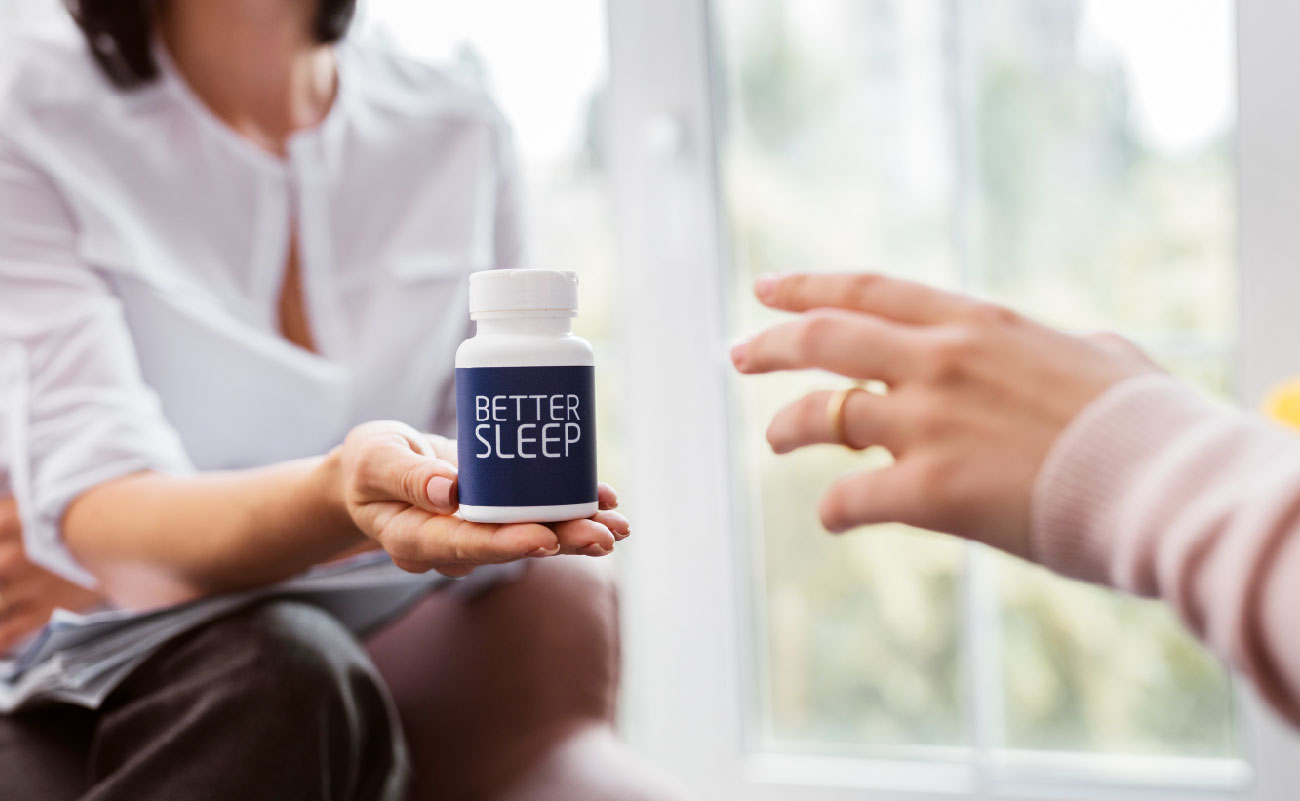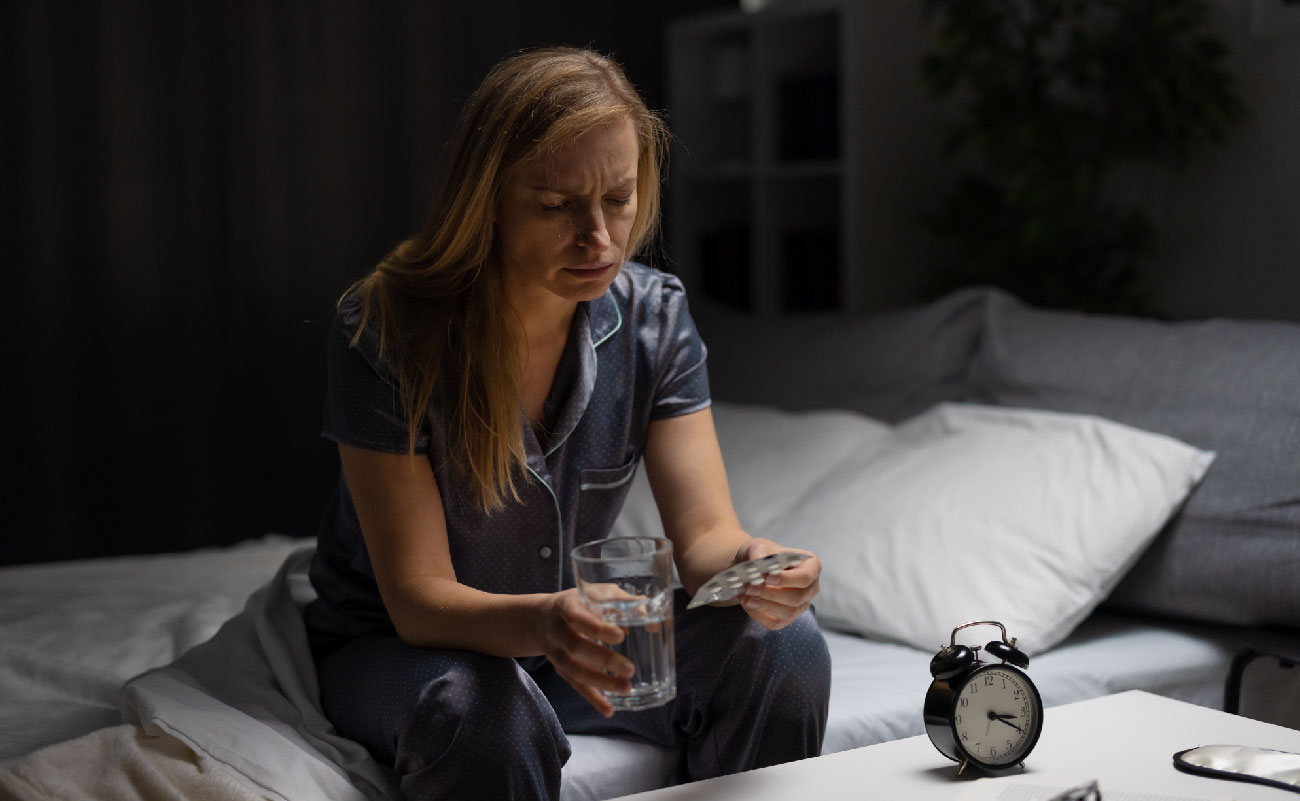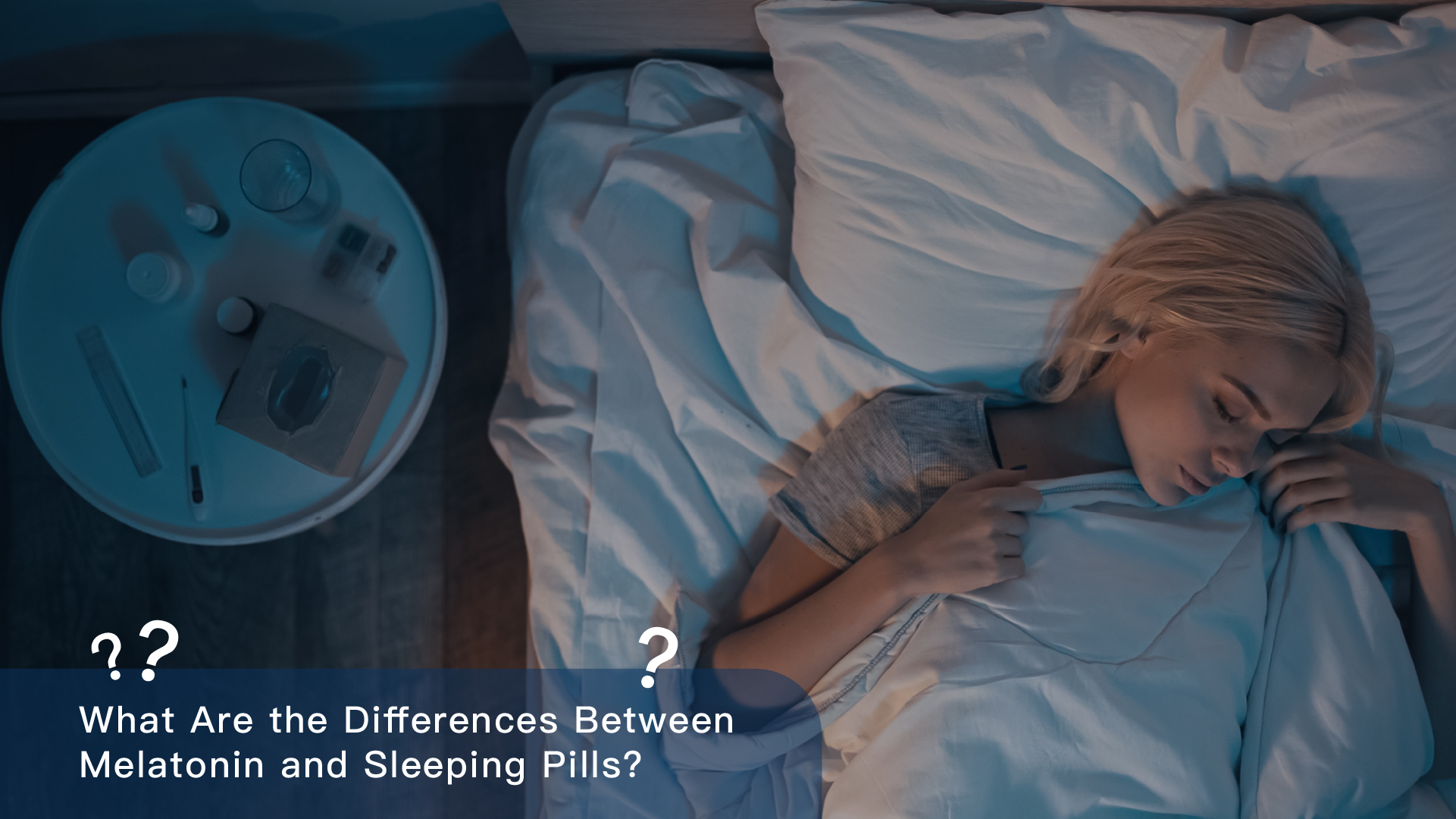What Are the Differences Between Melatonin and Sleeping Pills?
In today’s high-pressure work and living environments, many people experience insomnia due to anxiety and stress. This makes it difficult to fall asleep at night and leads to waking up during the night, resulting in feeling exhausted even after waking up. Chronic insomnia can cause headaches, memory loss, and difficulty concentrating, which can negatively impact daily life and work efficiency.
To improve sleep, many people turn to melatonin supplements or sleeping pills. But do you know the differences between melatonin and sleeping pills? Can they be taken together? This article will explain these differences in detail and provide essential information!

What Are Melatonin and Sleeping Pills? Understand Their Differences!
Both melatonin and sleeping pills can help with sleep, but they differ significantly in composition, mechanism of action, safety, and purchasing channels.
Melatonin
Melatonin is a hormone secreted by the pineal gland in the brain. It regulates the body’s circadian rhythm, including the sleep-wake cycle. In a dark environment at night, melatonin secretion increases, helping the body enter a sleep state; at dawn, secretion decreases to help the body wake up.
Therefore, melatonin is considered a natural sleep regulator, suitable for people who experience sleep disorders due to jet lag or shift work. In Hong Kong, melatonin is classified as a general health supplement and can be legally purchased in pharmacies, drugstores, or beauty stores.
Sleeping Pills
Sleeping pills are medications composed of chemical substances, such as benzodiazepines (BZDs), zopiclone, zolpidem, and antihistamines. These drugs are commonly used to alleviate short-term sleep problems but may come with side effects and potential risks of addiction.
In Hong Kong, most sleeping pills are prescription medications that require a doctor’s prescription before being prescribed. Therefore, it is recommended to consult with a healthcare professional before using these drugs to ensure their safe usage.

What Are the Effects of Melatonin and Sleeping Pills?
Melatonin is a naturally secreted hormone that helps regulate the sleep-wake cycle. Supplementing melatonin can assist in managing sleep disorders, such as reducing the time it takes to fall asleep, extending sleep duration, and improving sleep quality. Melatonin is also effective in adjusting circadian rhythm disruptions caused by jet lag.
Melatonin has a high safety profile, with research showing that even continuous use of 2 mg of sustained-release melatonin daily for up to 6 months has not been associated with significant side effects, tolerance, or addiction.
On the other hand, sleeping pills work by suppressing the central nervous system or reducing the activity of the brain’s wakefulness centers, thereby promoting sleep. These medications can help reduce nighttime awakenings, thus improving sleep quality and duration. However, sleeping pills may cause more side effects, such as drowsiness, mental confusion, memory decline, or behavioral disturbances, and they carry a risk of addiction. Therefore, it is generally recommended that the course of treatment with sleeping pills does not exceed four weeks.

Can Melatonin and Sleeping Pills Be Taken Together?
After understanding the effects of melatonin and sleeping pills, it is crucial to note that melatonin should not be taken together with sleeping pills. Taking them simultaneously may lead to interactions, resulting in excessive sedation from the sleeping pills and causing extreme drowsiness. Here are some guidelines for taking melatonin:
Usage Guidelines
Melatonin is generally recommended to be taken 30 minutes before bedtime. To achieve the best results and avoid side effects, start with a low dose, such as 0.5 mg to 1 mg, and gradually increase the dose based on your body’s response, with a daily intake limit of no more than 8 mg.
Contraindications
- Avoid consuming melatonin with alcohol.
- Avoid taking it with certain medications: sleeping pills, anticoagulants, immunosuppressants, non-steroidal anti-inflammatory drugs (NSAIDs), contraceptives, antidepressants, and blood pressure medications.
- Melatonin is not suitable for the following groups:
– Patients under 18 years old.
– Women trying to conceive, pregnant women, or breastfeeding mothers.
– Elderly individuals, especially those with dementia or Alzheimer’s disease.
– Patients with autoimmune diseases like lupus, rheumatoid arthritis, multiple sclerosis, etc.
– Patients with bleeding disorders.
– Patients with depression.
– Patients with epilepsy.
– Patients with liver or kidney dysfunction.
– Patients who have undergone organ transplant surgery.
– Patients taking certain medications, such as blood thinners, contraceptives, immunosuppressants, NSAIDs, epilepsy medications, antidepressants, antidiabetic medications, and blood pressure medications.
Maintain Stable Sleep with Somniphyt!
Are you struggling with insomnia? Do you want to maintain a stable sleep pattern? We recommend Santé Verte’s Somniphyt.

Somniphyt® Total Night LP utilizes a natural herbal blend of Passionflower, Valerian, Eschscholzia, and melatonin. This blend aims to reduce anxiety, improve sleep quality, and regulate bodily functions for overall health support.


